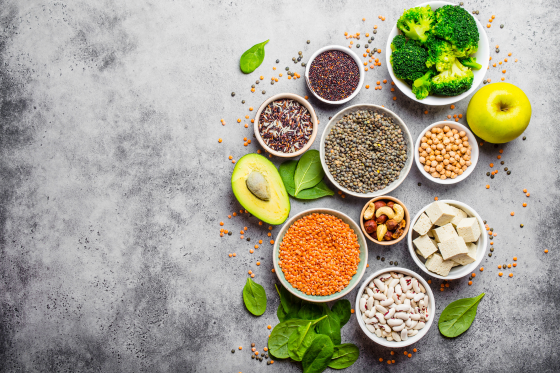Role of Nutrition in Basketball Ankle Injury Prevention

Basketball: a high-flying, adrenaline-pumping sport that demands every ounce of your physical and mental prowess.
It’s a game that tests the limits of your agility, speed, and endurance, showcasing the sheer beauty of human athletic capability.
But with every explosive jump shot, every swift crossover, and every sudden pivot, comes the lurking risk of ankle injuries.
These are not just mere setbacks; they are the chains that can bind your spirit, holding you back from reaching the zenith of your potential on the court.
While discussions around injury prevention often orbit the realms of proper training, warm-ups, and the right equipment, there’s a silent guardian of your athletic prowess that doesn’t get its due spotlight: Nutrition and hydration.
Yes, the fuel you provide your body plays a pivotal role in warding off injuries, particularly those pesky ankle woes that can sideline even the most seasoned players.
The Foundation of Injury Prevention: Nutrition
Proteins
After a grueling game or practice, it’s a protein that steps in to repair the wear and tear on your muscles.
Consuming adequate protein helps ensure that these repairs are made swiftly and effectively, reducing recovery times and strengthening muscle fibers.
High-quality sources of protein include lean meats like chicken and turkey, fish rich in omega-3 fatty acids like salmon, plant-based options like lentils, chickpeas, quinoa, and tofu, and dairy products, which provide the bonus of calcium.
Carbohydrates
Often misunderstood, carbohydrates are the fuel that powers you through each quarter of the game.
They’re stored in your muscles as glycogen, ready to be converted back into energy when the game demands it.
Opt for complex carbohydrates found in whole grains, fruits, vegetables, and beans for sustained energy release and recovery support.
Fats
By incorporating sources of healthy fats into your diet, such as avocados, nuts, seeds, and fatty fish, you not only help combat inflammation but also support overall health, ensuring your body is in prime condition to withstand the rigors of the sport.
Calcium and Vitamin D
This dynamic duo is crucial for strong bones, reducing the risk of fractures and other bone injuries.
Dairy products, fortified plant milks, leafy green vegetables, and fish with bones are rich in calcium.
For Vitamin D, sunlight exposure is key, alongside foods like fatty fish, egg yolks, and fortified foods.
Magnesium and Potassium
Magnesium plays a role in over 300 enzymatic reactions, including muscle relaxation, which helps prevent cramps and spasms.
Potassium is essential for muscle contraction and nerve function, as well as balancing fluids in your body, which can be particularly important during intense physical activity.
Sources include bananas, potatoes, spinach, nuts, and whole grains.
Iron
Iron deficiency can lead to fatigue and decreased athletic performance.
Incorporate iron-rich foods like lean red meat, poultry, fish, lentils, beans, and fortified cereals into your diet to keep your energy levels high.
Your Next Step to Pain-Free Lifestyle
At Power Physical Therapy & Sports Medicine, we understand the heartbreak that comes with being sidelined by ankle pain.
FREE Ankle Pain Assessment for athletes and enthusiasts alike who are ready to bounce back stronger.
Our team of skilled physical therapists is on standby, ready to provide an expert evaluation, craft a tailored recovery plan just for you, and guide you toward a pain-free lifestyle.
Reach out to us at (714) 557-2100 or visit our website to book your assessment.
Let’s make this the turning point, where you not only return to the game but come back with an undeniable vigor.
More Free Advice For Knee Related Pain
Read our blog – EXERCISES TO HELP WITH KNEE PAIN WHILE PLAYING BASKETBALL
Read our blog – 3 EXPERT WAYS TO GET RID OF PICKLEBALL KNEE PAIN
Download Our Free Report – Free Knee Pain Report
Follow us on social media – Facebook and Instagram
